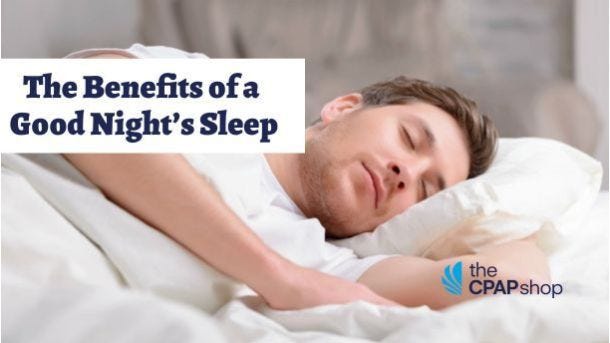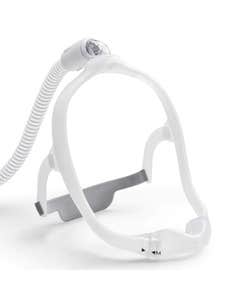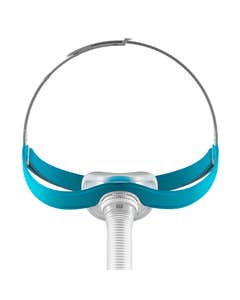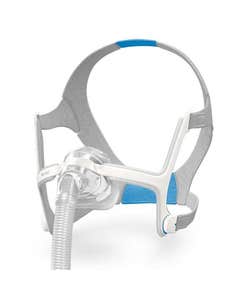The Benefits for a Good Night’s Sleep
Key Takeaways
- Sleep plays a vital role in our brain function, concentration, hormones, and overall health.
- Without proper sleep, we are at an increased risk of cardiovascular disease, diabetes, and lower immune system function.
- You can promote good sleep by getting regular exercise, developing a bedtime routine, maintaining a consistent sleep wake cycle, and creating the optimal sleep environment.
Most people have experienced a poor night's sleep and felt the effects the next day. You might feel sleepy, have low energy, and be a little irritable. Good quality sleep is vital for several reasons. While you sleep, your brain stores new information, releases hormones and proteins essential for functioning, and repairs cells.
Although sleep needs may vary, according to the American Academy of Sleep Medicine and the Sleep Research Society, most adults need at least 7 hours of sleep a night.¹ Getting a good night's sleep benefits mood, metabolism, weight regulation, and overall wellness.
Better Sleep = Better Concentration
During your waking hours, your brain is constantly processing information, retrieving memories of facts, skills, and experiences, and processing emotions. Sleep allows your brain to recover from all the demands during the day, repair brain cells, and promote better cognitive function. This helps improve your focus and concentration.
Being Active Can Lead to Good Sleep
Getting regular exercise may help you sleep better. It appears cardiovascular exercise increases levels of slow-wave sleep, which is deep sleep.² During deep sleep, your body and brain rejuvenate. Try to get 30 minutes of moderate aerobic exercise on most days of the week, such as brisk walking, biking, or swimming.
The Effects of Poor Sleep
Poor sleep may affect almost every system in your body and may have the following effects:
Increased Risk of Cardiac Failures
Sleep quality is also tied to heart health. Insufficient sleep can increase your level of stress hormones and inflammation, which appear to play a role in the development of cardiovascular disease.³ Poor sleep may also increase blood pressure, which causes your heart and blood vessels to work harder, increasing the risk of cardiac failure.
According to the National Heart, Lung, and Blood Institute, people who do not get enough sleep are at an increased risk of ⁴
- High blood pressure
- Coronary artery disease
- Stroke
Increased Risk of Diabetes
Poor sleep may increase your risk of developing diabetes. Lack of sleep can affect hormones including ghrelin and leptin which regulate appetite. This can lead to overeating and weight gain which are risk factors for developing type 2 diabetes. Poor sleep may also reduce your ability to respond to insulin.
Poor Immunity
Poor sleep may increase your risk of developing diabetes. Lack of sleep can affect hormones including ghrelin and leptin which regulate appetite. This can lead to overeating and weight gain which are risk factors for developing type 2 diabetes. Poor sleep may also reduce your ability to respond to insulin.
Increased Risk of Developing Sleep Disorders
Poor sleep may increase your risk of developing certain sleep problems, such as insomnia, and may worsen sleep disorders, such as sleep apnea. Sleep apnea involves brief pauses in breathing during sleep, usually due to airway obstruction. Although poor sleep is not the direct cause of sleep apnea, it may worsen symptoms.
Recommendations for a Good Night's Sleep


Fortunately, there are several things you can do which promote a good night's sleep. Consider the recommendations below for better sleep.
Try to Have a Consistent Sleep/Wake Time
Try to go to sleep and wake up at the same time each day. It's important for your body to develop a set sleep/wake cycle to regulate your internal clock. A regular sleep cycle also helps improve hormone regulation which affects sleep quality.
Develop a Bedtime Routine
A bedtime routine signals your mind and body that it's time to sleep. Your bedtime routine doesn't have to be long or involved. However, it should be something relaxing that helps you drift to sleep. Consider activities such as a warm bath, deep breathing exercises, or listening to music. Limit scrolling on your phone, which can stimulate your brain. Additionally, the light from your phone can trick your brain into thinking it is daylight, reducing melatonin release and interfering with sleep.
Avoid Excess Caffeine and Alcohol
Decrease the amount of caffeine you drink starting midafternoon, since caffeine can interfere with falling and staying asleep. Drinking alcohol may also disrupt sleep. Although it may help you fall asleep, alcohol affects the stages of sleep and how deep you sleep. Skip the nightcap and swap it for chamomile tea or warm milk.
Create the Optimal Sleeping Environment
Most people sleep best in a dark, quiet and cool environment. Consider keeping your bedroom temperature between 65-68° Fahrenheit to promote better sleep.⁵ Buy blackout curtains to keep unwanted light from streetlamps or early morning sun out of your room.
Using CPAP Therapy for Better Sleep
If you have untreated sleep apnea, it interferes with your quality of sleep. CPAP allows you to decrease your episodes of apnea, awakenings, and deepen sleep. Using CPAP also has positive long-term effects for individuals with sleep apnea such as lowering your risk of a cardiovascular event, diabetes, and high blood pressure.
Getting started on CPAP therapy doesn't need to be overwhelming. The CPAP Shop has everything you need including CPAP machines, masks and accessories. If you have any questions, we are happy to help! Give us a call at 866-414-9700 today.
References
- Consensus Conference Panel, Watson, N. F., Badr, M. S., Belenky, G., Bliwise, D. L., Buxton, O. M., ... & Tasali, E. (2015). Recommended amount of sleep for a healthy adult: a joint consensus statement of the American Academy of Sleep Medicine and Sleep Research Society. Journal of Clinical Sleep Medicine, 11(6), 591-592.
- John Hopkins Medicine. (n.d). Exercising for Better Sleep. Retrieve from https://www.hopkinsmedicine.org/health/wellness-and-prevention/exercising-for-better-sleep
- The University of Chicago Medicine. (2024). Sleep Prevention and Heart Disease: Everything You Need to Know. Retrieved from https://www.uchicagomedicine.org/forefront/heart-and-vascular-articles/how-sleep-deprivation-and-sleep-apnea-impact-heart-health
- National Heart, Lung, and Blood Institute. (2022). Why is Sleep Important? Retrieved from https://www.nhlbi.nih.gov/health/sleep/why-sleep-important
- Sleep Foundation. (2024). Best Temperature for Sleep. Retrieved from https://www.sleepfoundation.org/bedroom-environment/best-temperature-for-sleep









